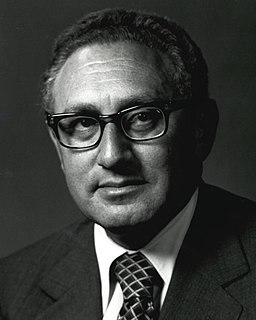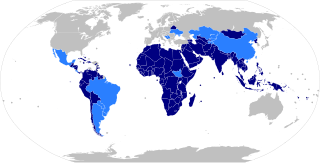
The Huns were a nomadic people who lived in Central Asia, the Caucasus, and Eastern Europe between the 4th and 6th century AD. According to European tradition, they were first reported living east of the Volga River, in an area that was part of Scythia at the time; the Huns' arrival is associated with the migration westward of an Iranian people, the Alans. By 370 AD, the Huns had arrived on the Volga, and by 430 the Huns had established a vast, if short-lived, dominion in Europe, conquering the Goths and many other Germanic peoples living outside of Roman borders, and causing many others to flee into Roman territory. The Huns, especially under their King Attila, made frequent and devastating raids into the Eastern Roman Empire. In 451, the Huns invaded the Western Roman province of Gaul, where they fought a combined army of Romans and Visigoths at the Battle of the Catalaunian Fields, and in 452 they invaded Italy. After Attila's death in 453, the Huns ceased to be a major threat to Rome and lost much of their empire following the Battle of Nedao (454?). Descendants of the Huns, or successors with similar names, are recorded by neighbouring populations to the south, east, and west as having occupied parts of Eastern Europe and Central Asia from about the 4th to 6th centuries. Variants of the Hun name are recorded in the Caucasus until the early 8th century.

Henry Alfred Kissinger is an American politician, diplomat, and geopolitical consultant who served as United States Secretary of State and National Security Advisor under the presidential administrations of Richard Nixon and Gerald Ford. A Jewish refugee who fled Nazi Germany with his family in 1938, he became National Security Advisor in 1969 and U.S. Secretary of State in 1973. For his actions negotiating a ceasefire in Vietnam, Kissinger received the 1973 Nobel Peace Prize under controversial circumstances, with two members of the committee resigning in protest.

William Howard Taft was the 27th president of the United States (1909–1913) and the tenth Chief Justice of the United States (1921–1930), the only person to have held both offices. Taft was elected president in 1908, the chosen successor of Theodore Roosevelt, but was defeated for re-election by Woodrow Wilson in 1912 after Roosevelt split the Republican vote by running as a third-party candidate. In 1921, President Warren G. Harding appointed Taft to be chief justice, a position in which he served until a month before his death.

The Yom Kippur War, Ramadan War, or October War, also known as the 1973 Arab–Israeli War, was fought from October 6 to 25, 1973, by a coalition of Arab states led by Egypt and Syria against Israel. The war took place mostly in Sinai and the Golan—occupied by Israel during the 1967 Six-Day War—with some fighting in African Egypt and northern Israel. Egypt's initial war objective was to use its military to seize a foothold on the east bank of the Suez Canal and use this to negotiate the return of the rest of Sinai.

The Non-Aligned Movement (NAM) is a forum of 120 developing world states that are not formally aligned with or against any major power bloc. After the United Nations, it is the largest grouping of states worldwide.

Lee Jun-fan, commonly known as Bruce Lee, was a Hong Kong American actor, director, martial artist, martial arts instructor and philosopher. He was the founder of Jeet Kune Do, a hybrid martial arts philosophy drawing from different combat disciplines that is often credited with paving the way for modern mixed martial arts (MMA). Lee is considered by commentators, critics, media, and other martial artists to be the most influential martial artist of all time and a pop culture icon of the 20th century, who bridged the gap between East and West. He is credited with helping to change the way Asians were presented in American films.

Cary Grant was an English-born American actor, who was one of classic Hollywood's definitive leading men. He was known for his transatlantic accent, debonair demeanor, light-hearted approach to acting, and sense of comic timing.

Soylent Green is a 1973 American ecological dystopian thriller film directed by Richard Fleischer and starring Charlton Heston and Leigh Taylor-Young. Edward G. Robinson appears in his final film. Loosely based on the 1966 science fiction novel Make Room! Make Room! by Harry Harrison, it combines both police procedural and science fiction genres: the investigation into the murder of a wealthy businessman; and a dystopian future of dying oceans and year-round humidity due to the greenhouse effect, resulting in suffering from pollution, poverty, overpopulation, euthanasia and depleted resources.

The Watergate scandal was a political scandal in the United States involving the administration of U.S. President Richard Nixon from 1972 to 1974 that led to Nixon's resignation. The scandal stemmed from the Nixon administration's continuous attempts to cover up its involvement in the June 17, 1972 break-in of the Democratic National Committee headquarters at the Washington, D.C. Watergate Office Building. After the five perpetrators were arrested, the press and the U.S. Justice Department connected the cash found on them at the time to the Nixon re-election campaign committee. Further investigations, along with revelations during subsequent trials of the burglars, led the U.S. House of Representatives to grant its judiciary committee additional investigation authority to probe into "certain matters within its jurisdiction", and the U.S. Senate to create a special investigative committee. The resulting Senate Watergate hearings were broadcast "gavel-to-gavel" nationwide by PBS and aroused public interest. Witnesses testified that the president had approved plans to cover up administration involvement in the break-in, and that there was a voice-activated taping system in the Oval Office. Throughout the investigation, the administration resisted its probes, which led to a constitutional crisis.

The Byrds were an American rock band formed in Los Angeles, California in 1964. The band underwent multiple lineup changes throughout its existence, with frontman Roger McGuinn remaining the sole consistent member. Although their time as one of the most popular groups in the world only lasted for a short period in the mid-1960s, the Byrds are today considered by critics to be among the most influential rock acts of their era. Their signature blend of clear harmony singing and McGuinn's jangly twelve-string Rickenbacker guitar was "absorbed into the vocabulary of rock" and has continued to be influential.

Anne, Princess Royal, is the second child and only daughter of Queen Elizabeth II and Prince Philip, Duke of Edinburgh. She is 14th in the line of succession to the British throne and has been Princess Royal since 1987.
The 1973 oil crisis began in October 1973 when the members of the Organization of Arab Petroleum Exporting Countries proclaimed an oil embargo. The embargo was targeted at nations perceived as supporting Israel during the Yom Kippur War. The initial nations targeted were Canada, Japan, the Netherlands, the United Kingdom and the United States with the embargo also later extended to Portugal, Rhodesia and South Africa. By the end of the embargo in March 1974, the price of oil had risen nearly 300%, from US$3 per barrel to nearly $12 globally; US prices were significantly higher. The embargo caused an oil crisis, or "shock", with many short- and long-term effects on global politics and the global economy. It was later called the "first oil shock", followed by the 1979 oil crisis, termed the "second oil shock".

A cloister is a covered walk, open gallery, or open arcade running along the walls of buildings and forming a quadrangle or garth. The attachment of a cloister to a cathedral or church, commonly against a warm southern flank, usually indicates that it is part of a monastic foundation, "forming a continuous and solid architectural barrier... that effectively separates the world of the monks from that of the serfs and workmen, whose lives and works went forward outside and around the cloister."
A multiplayer video game is a video game in which more than one person can play in the same game environment at the same time, either locally or online over the internet. Multiplayer games usually require players to share the resources of a single game system or use networking technology to play together over a greater distance; players may compete against one or more human contestants, work cooperatively with a human partner to achieve a common goal, or supervise other players' activity. Multiplayer games allow players interaction with other individuals in partnership, competition, or rivalry, providing them with social communication absent from single-player games.

Mountain was an American hard rock band that formed on Long Island, New York in 1969. Originally comprising vocalist and guitarist Leslie West, bassist and vocalist Felix Pappalardi, keyboardist Steve Knight and drummer N. D. Smart, the band broke up in 1972 and has reunited frequently since 1973. Best known for their cowbell-tinged song "Mississippi Queen", as well as the heavily sampled song "Long Red" and their performance at the Woodstock Festival in 1969, Mountain is one of many bands to be commonly credited as having influenced the development of heavy metal music in the 1970s. The group's musical style primarily consisted of hard rock, blues rock and heavy metal.

Julius Kambarage Nyerere was a Tanzanian anti-colonial activist, politician, and political theorist. He governed Tanganyika as Prime Minister from 1961 to 1962 and then as President from 1963 to 1964, after which he led its successor state, Tanzania, as President from 1964 to 1985. A founding member of the Tanganyika African National Union (TANU) party—which in 1977 became the Chama Cha Mapinduzi party—he chaired it until 1990. Ideologically an African nationalist and African socialist, he promoted a political philosophy known as Ujamaa.

Robert James Fischer was an American chess grandmaster and the eleventh World Chess Champion.
The Five Families is the organization of the five major New York City organized crime families of the Italian American Mafia formed in 1931 by Salvatore Maranzano following his victory in the Castellammarese War.

The 1973–74 season of the European Cup football club tournament was won for the first time by Bayern Munich, beginning their own three-year period of domination, in a replayed final against Atlético Madrid. This was the first time the cup went to Germany, and the first European Cup final to require a replay after the first match was drawn 1–1 after extra time.

The Saturn Awards are American awards presented annually by the Academy of Science Fiction, Fantasy and Horror Films; they were initially created to honor science fiction, fantasy, and horror on film, but have since grown to reward other films belonging to genre fiction, as well as television and home media releases. The Saturn Awards were created in 1973 and were originally referred to as Golden Scrolls.
















